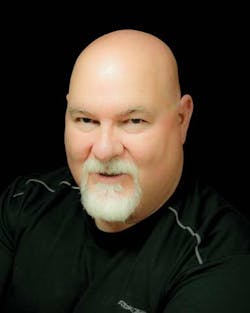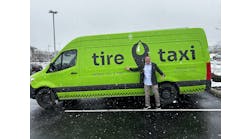In the arena of tire and service sales, “questions” are critical for a variety of reasons. Questions assist in the initial discovery process to determine what to put on the work order. The initial questions and answers point the conversation in a particular direction, which ultimately determines the final result or outcome. The types of questions asked and the tone of the questions can help or hinder the establishment of clarity and confidence.
I’m amazed at the questions I hear sales staff ask. I can only assume that all too often sales staff approach the customer with mistaken assumptions.
Last week I took my 2008 Chevy Trailblazer SS in for service and the sales person was obsessed with scheduling and pricing. He assumed I wanted my vehicle back ASAP and assumed that I was going to object to a $100 diagnosis charge. We spend too much time talking about time and money. Instead of asking questions that would help him and his service technician solve the problem, he asked unimportant questions based on mistaken assumptions. The result? They almost fixed my problem; however, I did get several unnecessary calls to update me on the progress during service. I can only assume that the salesperson misunderstood my point, having the vehicle fixed properly was more important than returning the vehicle to me with unresolved problems.
Asking the right questions in the right order for the right reasons is so powerful that I’m going to devote several articles on “How to ask sales-driven, satisfaction-focused questions.”
Ask and listen
Before we look more deeply at types of questions, we must understand that both listening to responses and avoiding mistaken assumptions is imperative. Asking good fact-finding questions is pointless if a sales person does not listen to the answers and if basic assumptions are askew.
Examples of mistaken assumptions include: 1) all customers buy based solely on price; 2) discounting is the key to customer happiness; and 3) every customer expects their vehicle returned immediately. In my aforementioned experience, I would gladly have waited another day and paid another $50 so that I wouldn’t have to go back.
Opening, body and close
All successful sales presentations have an opening, a body, and the close. There are appropriate questions for each. The proper tone, pace and presentation of any question is essential.
There are three types of questions that are generally used in the opening or discovery phase: open-ended, fact-finding questions; qualifying/gathering questions; and leading questions.
Open-ended questions require more than a yes, no or short answer. The customer’s answer begins to frame the conversation and gives you necessary information to proceed. Example: “When do you experience the squeaking noise?” or “Can you describe when you hear the noise most?”
Open-ended questions lead to qualifying or gathering questions. When you ask the question, “How long have you been hearing the squeak?” and the reply is, “A few days,” you can gather that the customer is perhaps more interested in safety and maintenance than the customer who replies, “Three to four weeks.” When you ask, “How long have you owned the vehicle?” and the reply is, “Since it was new” versus “I just bought it to run back and forth to work” may indicate the level of pride of ownership.
Qualifying or gathering questions lead to leading questions such as, “Do you take the kids to soccer practice or back and forth to school?” Understanding how the vehicle is used and for what purposes helps you with your approach when it comes time to make recommendations.
In future articles, we’ll look at questions that establish trust and rapport, and we’ll look at what I call “trigger and temperature questions.” Temperature questions help you gauge what your customer is thinking and feeling, and trigger questions are obvious. We’ll look at how to ask questions that overcome objections that then lead to the all-important closing questions.
Recognizing the power of questions and understanding their proper execution will undoubtedly lead to more sales and more satisfied customers. I’ve found it helpful over the years to casually and confidently ask questions that help customers say yes.
Customers buy value. Asking the right questions will assist you in finding the value buttons that are necessary to drive sales and help customers. Any questions? ■
Wayne Williams is president of ExSell Marketing Inc., a “counter intelligence” firm based in La Habra, Calif. He can be reached at [email protected].
Want to read more of Wayne Williams' "Counter Intelligence" columns? See:

